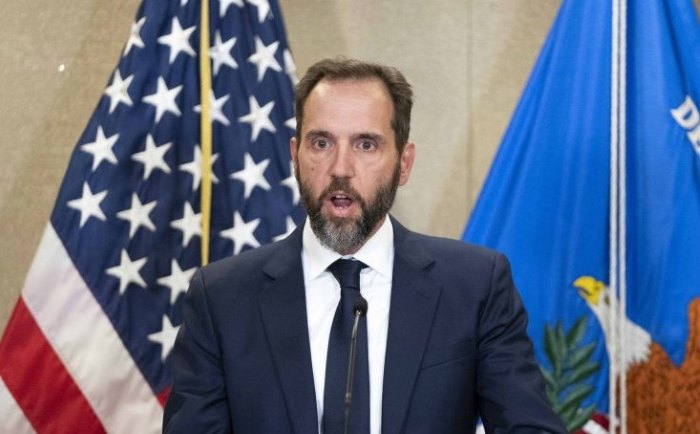U.S. News
Supreme Court Requests Special Counsel’s Reply to Trump’s Request for Trial Postponement
Supreme Court Requests: In a critical legal juncture, the US Supreme Court has granted Special Counsel Jack Smith additional time to respond to former President Donald Trump’s requests for a temporary halt in his criminal trial. The trial, centered on charges of election interference, has become a focal point of Trump’s legal battles. The recent federal appeals court decision allowing prosecution in a US district court in Washington has intensified the legal showdown.
Trump’s Legal Maneuvers Amidst White House Campaign
Donald Trump, actively campaigning for a return to the White House, is challenging the federal appeals court decision. If the decision stands, it empowers US District Judge Tanya Chutkan to set a new trial date. Chief Justice John Roberts’ call for Special Counsel Jack Smith’s response follows Trump’s appeal to the Supreme Court, seeking intervention and a pause in the trial. Simultaneously, Trump is pursuing appeals for immunity. This involves seeking relief from either a larger panel of appellate judges or directly from the Supreme Court.
“Donald Trump’s legal maneuvers reveal a determined bid for a White House return, challenging court decisions,” according to Barron’s.
Supreme Court’s Deliberate Approach
The Supreme Court’s decision to extend the response deadline suggests a cautious and measured approach. The ultimate fate of the trial remains uncertain, and the court’s timeline indicates a deliberate consideration of Trump’s application. Special Counsel Jack Smith, advocating for an expedited trial this year, may expedite his response to the court.
Trump’s Arguments for Delay: Postponing Trial Until After 2024 Election
The Supreme Court Requests that Trump, renowned for his penchant for seeking deadline extensions, argues for a delay until after the November 2024 election. He asserts that a potential victory at the polls would empower him to instruct the Justice Department to drop the case. This strategic move aligns with his broader political ambitions, underscoring the imperative to preserve his ability to campaign against President Biden during the height of the election season.
Appeals Court Ruling: Rejecting Trump’s Immunity Claim
The recent 3-0 decision by the appeals court rejected Trump’s claim of immunity. The court raised concerns regarding granting him “unbounded authority to commit crimes that would neutralize the most fundamental check on executive power.” Specifically, the court highlighted the potential impact on the recognition and implementation of election results. Trump’s legal team counters, asserting that a delay is crucial to preserving his ability to campaign effectively.
Roberts’ Role: Referring Stay Application to the Full Court
Chief Justice Roberts is currently managing emergency matters from the US Court of Appeals for the DC Circuit. It is anticipated that he will forward the stay application to the complete nine-member Supreme Court. While he retains the authority to act independently, the gravity of the case suggests a collective review by the full court. The decision’s implications extend beyond legal intricacies. It impacts the nation’s anticipation of the Supreme Court’s stance on Trump’s bid for a trial delay amidst his political aspirations.
“Chief Justice Roberts managing DC Circuit emergency shows significant case, likely Supreme Court collective review impact,” said Bloomberg.

